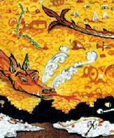Forum
Welcome Guest |
|
|---|---|
 Author Author |
Topic: |
|---|
| Ireth_Telrunya |
|
||||||||
| Galadivren |
|
||||||||
| Ireth_Telrunya |
|
||||||||
| Galadivren |
|
||||||||
| Elhath |
|
||||||||
| Ireth_Telrunya |
|
||||||||
| Galadivren |
|
||||||||
| Ireth_Telrunya |
|
||||||||
| Galadivren |
|
||||||||
| Ireth_Telrunya |
|
||||||||
| Ireth_Telrunya |
|
||||||||
| Members Online |









 Verbs and other stuff
Verbs and other stuff
